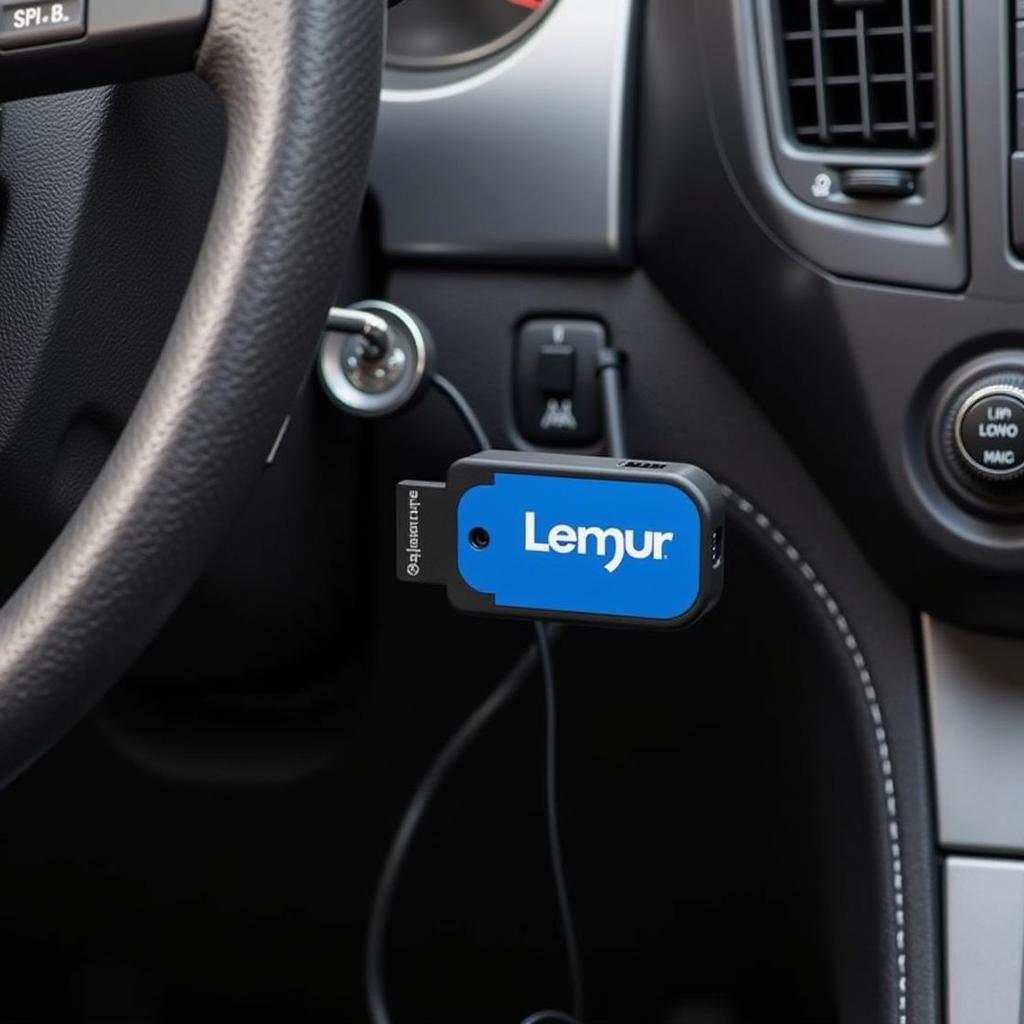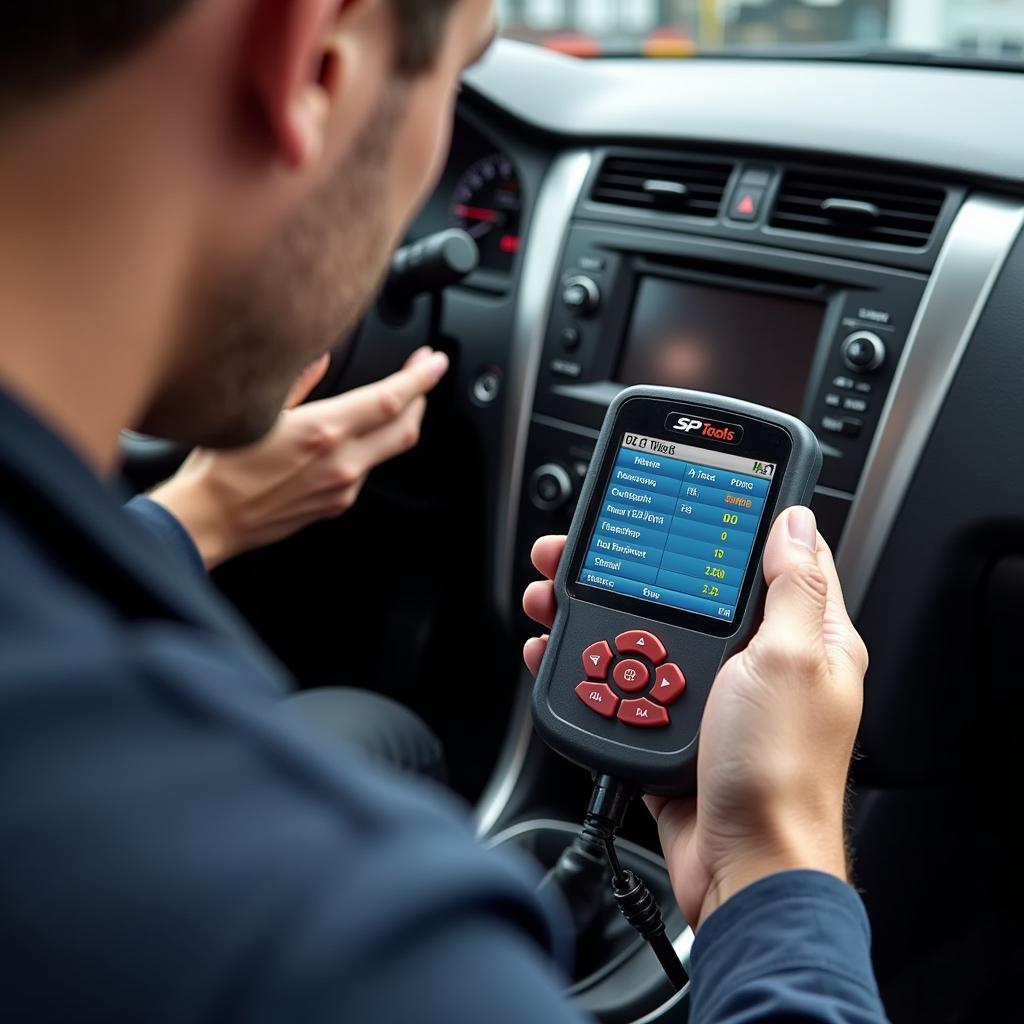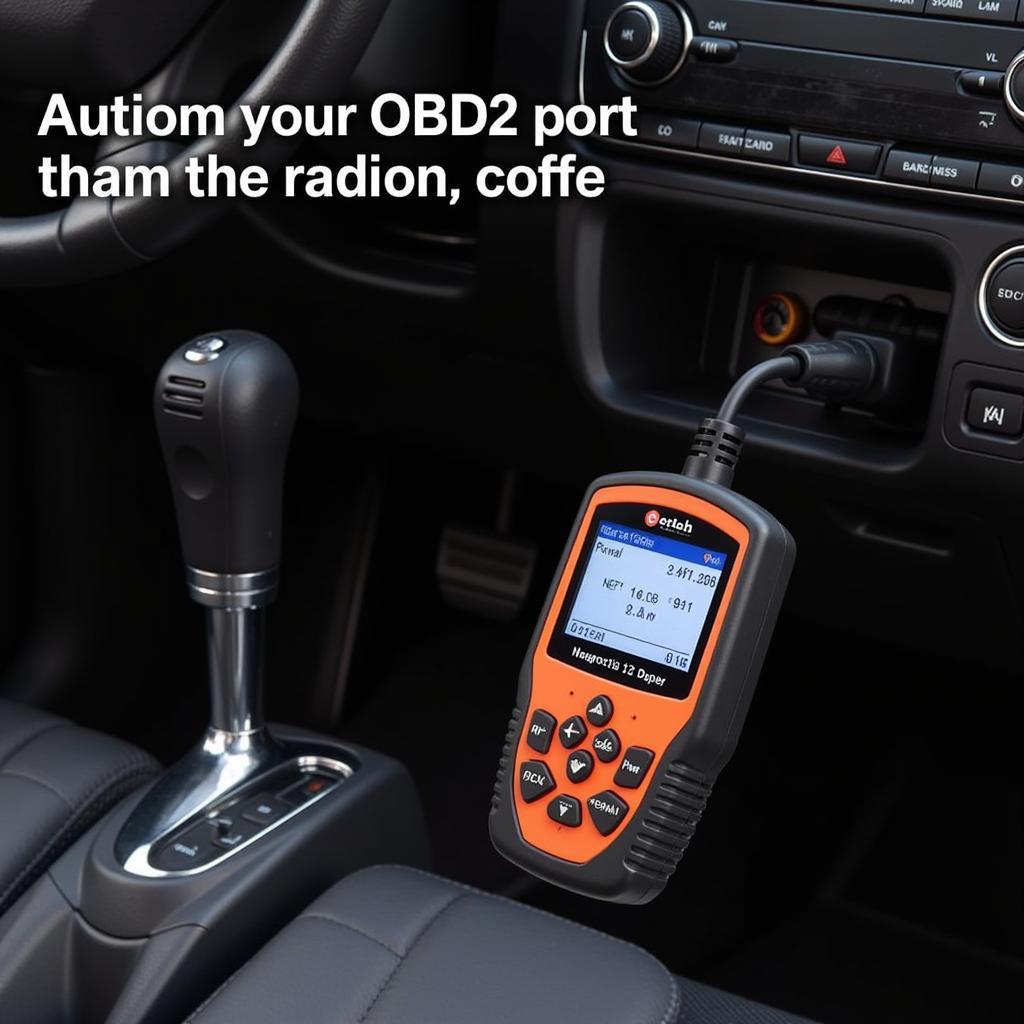Modern vehicles rely heavily on software, making them vulnerable to malicious software. Finding a Free Tool To Scan For Malicious Software in your car’s systems can be crucial for maintaining its performance and security. However, this area is still developing, and dedicated free tools specifically for vehicle malware detection are scarce. Let’s explore how you can protect your car’s electronic systems.
Using a general-purpose malware scanner on a computer connected to your car’s OBD-II port is a potential approach, although it may not be as effective as dedicated solutions. However, understanding the basics of vehicle cybersecurity is the first step in protecting your vehicle. Some port scanning tools free available for computers might offer insights into your car’s network vulnerabilities. Remember to exercise caution when connecting to your car’s OBD-II port, as improper use can damage sensitive electronics.
Understanding the Need for a Free Tool to Scan for Malicious Software
Why is scanning for malicious software even necessary in a car? The increasing complexity of car software has opened the door to potential cyberattacks. Everything from the infotainment system to the engine control unit (ECU) relies on software, creating vulnerabilities that hackers could exploit.
Protecting your car from malware is not just about preventing data theft; it’s about ensuring the safe and reliable operation of your vehicle. A compromised system could lead to anything from minor inconveniences to serious safety hazards.
Can You Use Code Vulnerability Scan Tools on Car Systems?
While code vulnerability scan tools are valuable for software development, applying them directly to a car’s systems is generally not feasible for the average car owner. Car manufacturers employ rigorous testing and security measures during development. However, aftermarket modifications and unauthorized software installations can introduce vulnerabilities.
What are the signs of malware in a car?
Unexpected behavior in your car’s electronics, like the infotainment system freezing or the engine behaving erratically, can be potential signs of a malware infection. However, these symptoms can also be caused by other issues, so a thorough diagnosis is essential.
“One tell-tale sign could be unexplained data usage on your car’s connected services,” says Dr. Emily Carter, Automotive Cybersecurity Expert at the University of Michigan. “If your car is suddenly using significantly more data than usual, it’s worth investigating.”
Preventive Measures: Better than a Free Tool to Scan for Malicious Software?
Although finding a free tool to scan for malicious software specifically designed for cars is challenging, several preventive measures can significantly reduce your risk:
- Keep your car’s software updated: Manufacturers regularly release software updates that often include security patches.
- Be cautious about connecting devices: Avoid connecting unknown or untrusted devices to your car’s USB ports or other connection points.
- Use strong passwords for connected services: Choose strong, unique passwords for your car’s Wi-Fi and any connected apps.
- Be wary of third-party software: Only install software from reputable sources, and avoid modifications that could compromise your car’s security.
“Think of your car’s software like your phone’s operating system,” explains John Miller, Senior Automotive Technician at ScanToolUS. “Regular updates are crucial for maintaining security and optimal performance.”
Autoenginuity Scan Tool Torent: A Potential Option?
While searching for a Autoenginuity scan tool torent might seem like a cost-effective solution, be aware of the risks associated with using pirated software. Pirated software often lacks essential updates and could even contain malware itself. Investing in legitimate diagnostic tools is always recommended.
Windows Vulnerability Scanning Tools: Relevance to Car Security
While Windows vulnerability scanning tools are designed for computer systems, understanding the principles of vulnerability scanning can be helpful in the context of car security. The interconnected nature of modern vehicles requires a holistic approach to cybersecurity, encompassing both the car itself and any connected devices.
Coverity Scan Tool and Static Analysis
Coverity scan tool exemplifies the use of static analysis in software development. This technique helps identify potential vulnerabilities in code before it’s deployed. While not directly applicable to scanning a car’s systems, it highlights the importance of robust security practices in the automotive software development process.
Conclusion
Finding a dedicated free tool to scan for malicious software in your car might be challenging, but focusing on preventive measures is crucial. Staying informed about potential threats and adhering to safe practices can significantly reduce your risk.
Need help with your car’s diagnostics or have concerns about its electronic systems? Contact ScanToolUS at +1 (641) 206-8880 or visit our office at 1615 S Laramie Ave, Cicero, IL 60804, USA.
FAQ
- Are free car malware scanners reliable? Currently, there aren’t widely available, reliable free scanners specifically for car malware.
- How can I update my car’s software? Consult your car’s owner manual or contact your dealership for instructions on updating your car’s software.
- Can malware damage my car’s engine? Theoretically, yes. Compromised software could potentially interfere with critical systems, including the engine.
- Is connecting my phone to my car safe? Generally, yes. However, ensure your phone’s software is up-to-date and avoid connecting to unknown or untrusted devices.
- What are the common entry points for car malware? The OBD-II port, USB connections, and wireless interfaces are potential entry points.
- How can I protect my car from hackers? Keep your car’s software updated, use strong passwords, and be cautious about connecting devices.
- Should I be concerned about car malware? While the risk is relatively low, staying informed and taking preventive measures is always recommended.



